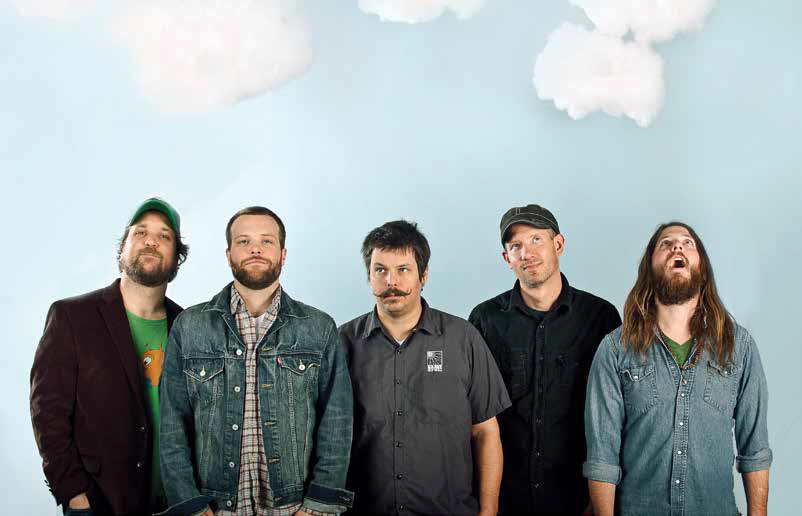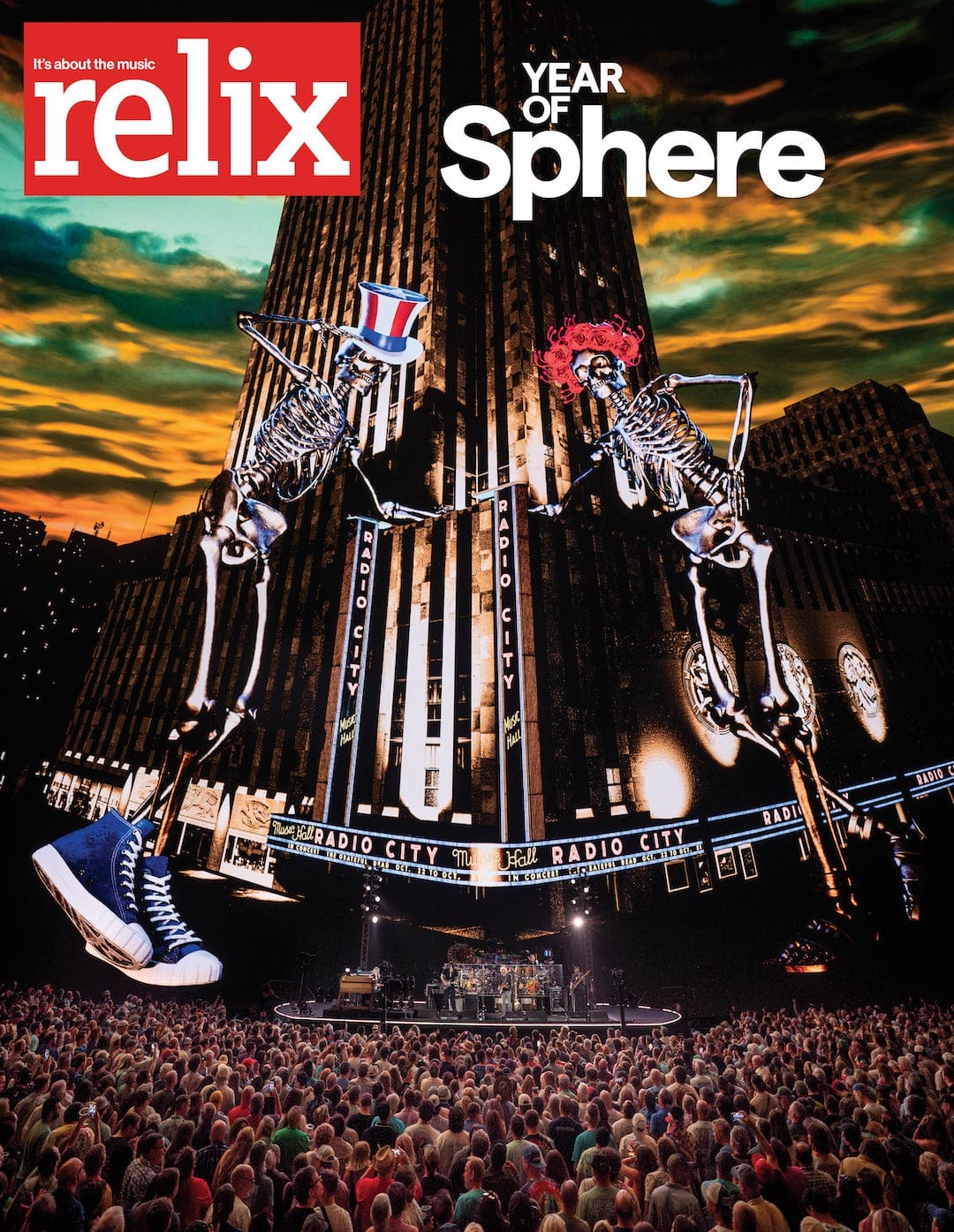Spotlight: Greensky Bluegrass

Bluegrass music isn’t quite what it used to be. The days of Bill Monroe, Flatt & Scruggs and even Old and in the Way have given way to a new generation of performers with a more open-ended idea of where the genre could go. Call it newgrass, progressive bluegrass, jamgrass or whatever else you’d like, but it’s become a powerful force on the live music scene.
Greensky Bluegrass are the perfect embodiment of where this sound is today. The Kalamazoo, Mich.-based quintet—Paul Hoffman (mandolin), Dave Bruzza (guitar), Anders Beck (dobro, lap steel), Michael Bont (banjo) and Mike Devol (upright bass)—approaches many of their arrangements from an improvisational rock perspective. The band has a penchant for veering off the beaten path during their live performances, often delving into decidedly psychedelic territory as they work their way through valleys and plateaus before building up to a dizzying peak or two. It’s the kind of thing you’d expect from a string band full of guys who spent more of their formative years on Phish tour than in Appalachia.
“Our approach to a song during our performances is different than a bluegrass band in a lot of ways,” says Hoffman. “We play bluegrass, but we all come from and have listened to different music and have so many different ideas. The important part about the fusion of our band is this musical influence from the outside. It’s trying to do things with our instruments that aren’t so natural or haven’t been done as often.”
That’s not to say that Greensky Bluegrass have completely thrown tradition to the wind. The group’s instrumentation is considerably more old-school than some of their contemp- oraries, many of whom have augmented their strings with keyboards, drums or horns. (Though Greensky did once perform with Grateful Dead percussionists Bill Kreutzmann and Mickey Hart.) The band is lyrically grounded, with principal songwriters Hoffman and Bruzza opting to shine a light on the larger themes buried in the life of the everyman, instead of getting lost in the absurd or the fantastical. Still, their commitment to pushing the envelope, especially in the live arena, has made the group a must-see act for those in the jamband community and beyond.
“It’s something that comes naturally to us because none of us really came from a bluegrass background,” says Bruzza. “We all love bluegrass music, but we’re able to put our own stamp on it. That’s why when you put our record on against any other bluegrass band, it’s a completely unique experience.”
As fall approaches, Greensky Bluegrass are preparing for the release of their fifth studio album, If Sorrows Swim. While the songs on their previous effort, 2011’s Handguns, all dealt with similar ideas, the new release isn’t as cohesive in its subject matter. However, the songs themselves are as focused as ever.
“The last record presented the challenge of recording ‘All Four’ and ‘Don’t Lie,’ which are both live vehicles for us,” recalls Hoffman. “But with this record, the songs that are now becoming the big open tunes weren’t as developed yet, so we sort of conveyed more core ideas from them and saved some pieces for the live show.”
Bruzza adds, “This album is all over the place. I’ve heard Paul, Anders and others describe it as more Greensky than bluegrass. We cover a lot of ground lyrically and musically…I hate to use the term, but it’s definitely more mature than any other records we’ve made.”
With another album under their belt, Greensky Bluegrass can put their energy back into the touring regimen that is their bread and butter. Though the band isn’t playing 170 shows a year like they were half a decade ago, there’s still an eagerness to hit the road and deliver their music to as many people as possible. Breaking from tradition, they are waiting for If Sorrows Swim’s release date before sinking their teeth into some of the new material onstage.
“It’s taken a lot of self-control,” says Hoffman. “While it’s nice to go into the studio with songs that we’ve already developed live, it’s also nice to have new songs that we haven’t played which will find a new place once we start playing them. The version on the album is the version that we decided in that moment, but it doesn’t need to be that way forever. We don’t really stress about changing things or worrying if we could’ve done better on the record. It doesn’t bother us. It’s just different—our studio and live performances. Songs grow up.”



















